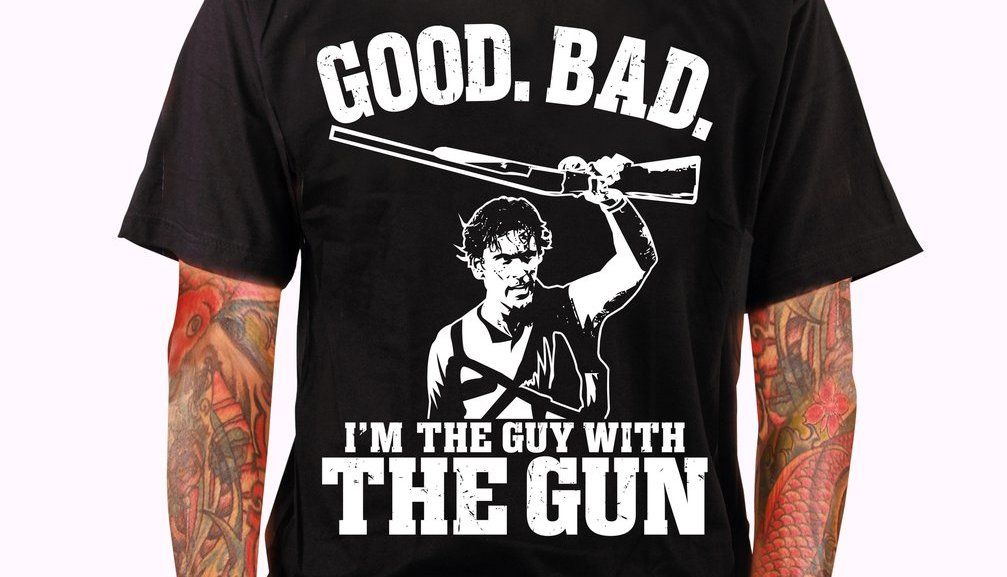Of all the devices commonly used in modern society, firearms alone are subject to serious moral judgment. It’s not unusual to hear the terms “Good” and “Evil” applied to owning guns. I confess to being uncomfortable with this terminology. For one thing, in today’s world pronouncing absolutes, like explaining The Meaning of Life, is received suspiciously. Could it be that there are no absolutes? Are the post-modernists right? Is one’s position on gun control just narrative? Are all narratives created equal?
The average person’s perspective on guns is anything but neutral. A significant part of the medical profession believes that it’s bad to have guns in a home. Others believe that guns are good because they help stop a million crimes a year without even being fired. I maintain that whether firearms are regarded as good or evil depends on three factors: 1. WHO are the actors? 2. WHAT is their purpose? and, 3. WHAT is their location?
I am thinking here of good and evil in strictly subjective terms. I will not get into the cosmic dramas inherent in many religions and schools of philosophy.
As an example, imagine that you and I are riding together in an automobile and we have a serious accident. You emerge without a scratch. I have a broken back that will handicap me for a lifetime. My subjective impression is that something good has happened to you and something evil has happened to me. Subjectively, I feel this regardless of agency. Whether my injuries resulted from the laws of physics or are the Devil’s work, the result is still the same.
To begin with, consider the actors in the following events. At the time of this writing, the United States Senate is vetting an appointee to the Supreme Court. Many witnesses have been called to testify.
One of them, a middle-aged lady, expressed her concern about the candidate’s position on gun control. This lady had tragically lost her daughter when a maniac opened fire in a crowded Colorado theater. In her mind she and her family were the victims of a terrible evil, an evil that could have been avoided if only a firearm had not been available. The perpetrator killed a total of twelve people and injured seventy.
Now imagine this. You’re an armed off-duty policeman or a well-trained citizen licensed for concealed carry. You’re sitting close to the shooter and you take him out just as he opens fire. Have you done something good? Yes, you have! In this case, you might not do anything better for the rest of your life. In fact, this “good” scenario is exactly what happened at Ohio State University in November when a policeman used his gun to stop a terrorist from knifing students and running them over. In this example, having a gun resulted in a great good. A gun’s ability to mete out good or evil depends on WHO is using it.
Next, let’s consider the purpose of the actors in the incidents of gun violence discussed above. In the case of the 2012 Colorado theater massacre, the shooter was judged to be sane. He presumably considered it good to inflict evil on his victims. His only regret was that he hit a child. That was more suffering than even he wished to inflict. For his purposes, the gun was good. For his victims, it was just the reverse. In the Ohio case, the policeman’s gun stopped a terrorist attack that might have taken many more lives. Was its presence a good thing? The victims would say yes! For them, it was put to good purpose; only the killer would disagree.
Finally, let’s consider location. Imagine that the year is 2014 and you are a Yazidi in the middle of Iraq. You are a member of a small, peaceful religious group that has existed for centuries. Your community is a threat to no one. Then disaster strikes. You learn that ISIL is only days away from liquidating you and your people. They know your house is not inhabited by members of their religion. They intend to behead you and your sons, make your wife and daughters sex slaves, and destroy everything that you stand for.
So there you sit, naked and afraid. There are no guns in your village because it has been illegal for Yazidis to own guns for generations. If anyone survives the devastation you’re now facing, it will only be because an armed third party comes to your aid.
What happens next will be recorded by history as a great evil. Thousands of your people will be annihilated and an even greater number will be enslaved. Because of your location, the possession of guns would’ve been good! They represented your only chance of avoiding a tragic fate. Your only hope is that American air power and the Kurdish Peshmerga come to your aid. And in fact, it was only their combined help that allowed 50,000 of your co-religionists to go on living.
In conclusion, I would suggest that guns and other weapon systems have no intrinsic moral worth. They are complex tools by which human agents can inflict Good or Evil, depending on their motives. The chief concerns: WHO are the actors, WHAT is their purpose, and WHERE are they located.
The presence of a gun in the wrong hands can bring evil into the world. But an even greater risk is the lack of a gun in the right hands which, if used properly, can bring about great good. It’s my hope that if we continue to teach responsible gun ownership, we can bring about enough deterrence that the use of guns for Good or Evil will become increasingly rare.
—Wallace Schwam, MD is a retired internist with interests in geriatrics and pharmacology who trained at Duke University. He rated expert in marksmanship in the Army and continues to enjoy hunting and tactical training with handgun, rifle and shotgun.


